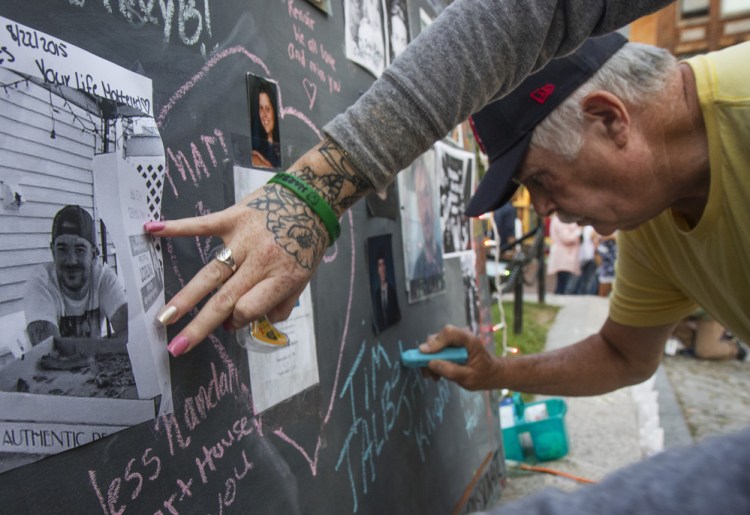The number of fatal drug overdoses has officially leveled off in Maine, but the epidemic is still killing at least one person every day – and given the scope of the problem and the state’s lackluster response, there’s no reason to expect things to get better any time soon.
Overdoses killed 185 people in Maine in the first six months of this year, the state Attorney General’s Office announced Wednesday – a slight decrease from 189 fatalities over the same period in 2016. That’s not much to cheer about, considering that last year saw a record 376 overdose deaths and that total reflected an increase of nearly 40 percent from 2015.
What’s more, Maine is facing a growing threat from a far more deadly opioid. Cheaper and easier to produce than heroin and 50 times as strong, the synthetic painkiller fentanyl is coming into the U.S. over the southern border and through the mail, primarily from illicit labs in China. The toll is obvious: Fentanyl has been linked to 61 percent of the drug deaths in Maine between January and June, according to the Attorney General’s Office, up sharply from the first half of 2016, when it was a factor in 44 percent of fatal overdoses.
The influx of fentanyl would be chilling even if Maine were wholeheartedly addressing the drug crisis – but it’s not. Our policymakers continue to debate whether the people who are struggling with addiction have a disease that needs medical treatment – the evidence-based view – or a moral failing that demands that they be treated as lawbreakers.
This inability to reach consensus is reflected in our “one step forward, two steps back” approach to addressing the crisis. Abdicating its responsibility to help create policy, the Maine Department of Health and Human Services testified against many of the addiction-related bills before the Legislature last session as “unnecessary” and has been skipping meetings of an ad hoc state task force – whose final report may well wind up on a shelf, next to the largely ignored recommendations that an earlier panel issued just last year.
Meanwhile, Gov. LePage has talked up his administration’s plan to extend medication-assisted treatment to an estimated 350 uninsured Mainers. It’s a good start, but hardly enough, given that 25,000 to 30,000 Mainers say they’re seeking addiction treatment but don’t have access to it.
Another measure – the commitment of state and federal funds to an opioid health home model that could reach another 400 people – has yet to help anyone receive access to treatment, Malory Shaughnessy of the Alliance for Addiction and Mental Health Services told the Press Herald.
Law enforcement officials, the medical community and addiction treatment providers have been fighting to contain the addiction epidemic – but until policymakers start treating this crisis like the public health emergency that it is, their efforts will fall short, and Mainers will continue to die.
Copy the Story LinkSend questions/comments to the editors.



Success. Please wait for the page to reload. If the page does not reload within 5 seconds, please refresh the page.
Enter your email and password to access comments.
Hi, to comment on stories you must . This profile is in addition to your subscription and website login.
Already have a commenting profile? .
Invalid username/password.
Please check your email to confirm and complete your registration.
Only subscribers are eligible to post comments. Please subscribe or login first for digital access. Here’s why.
Use the form below to reset your password. When you've submitted your account email, we will send an email with a reset code.